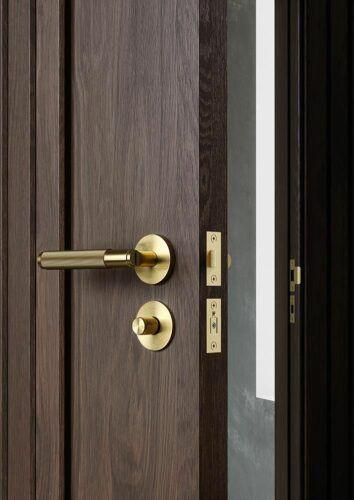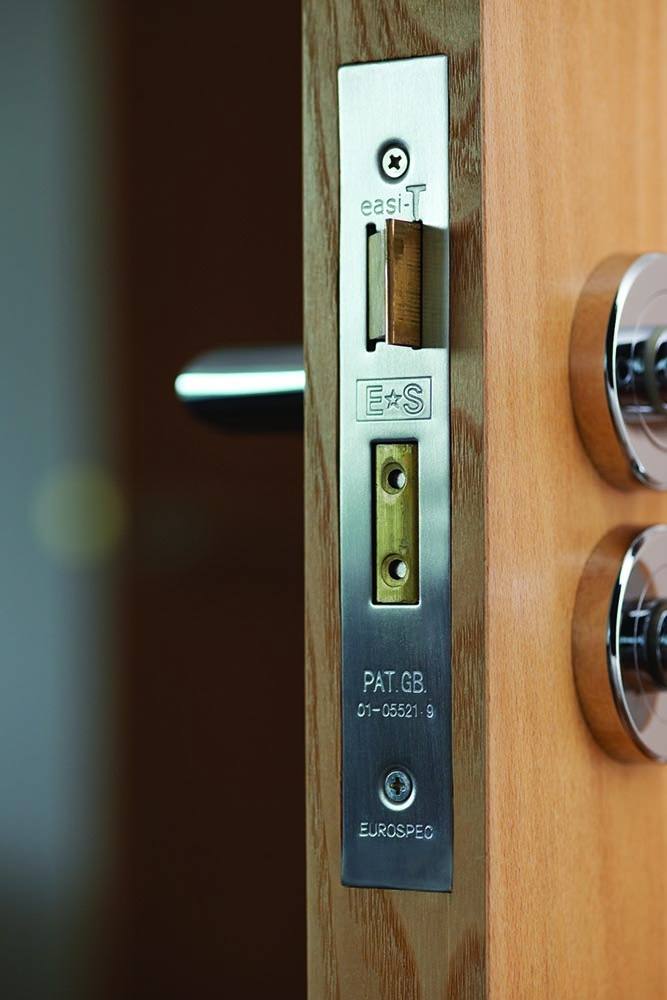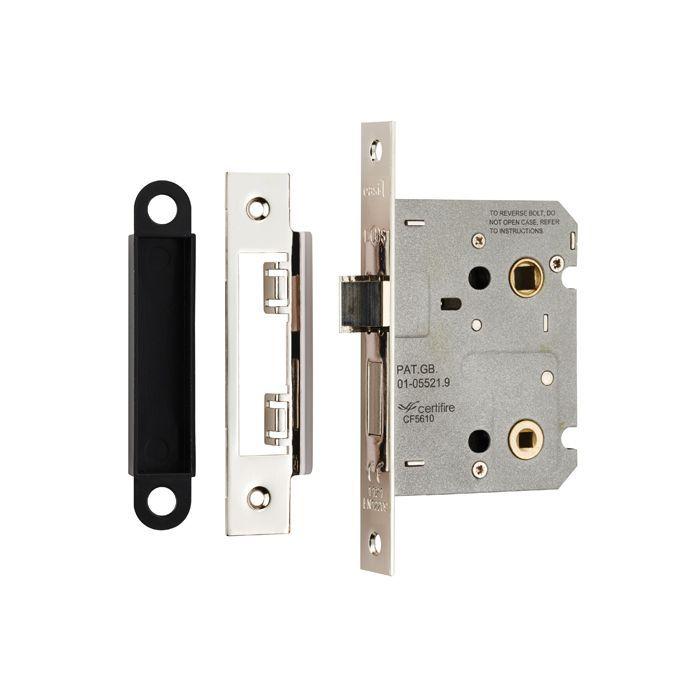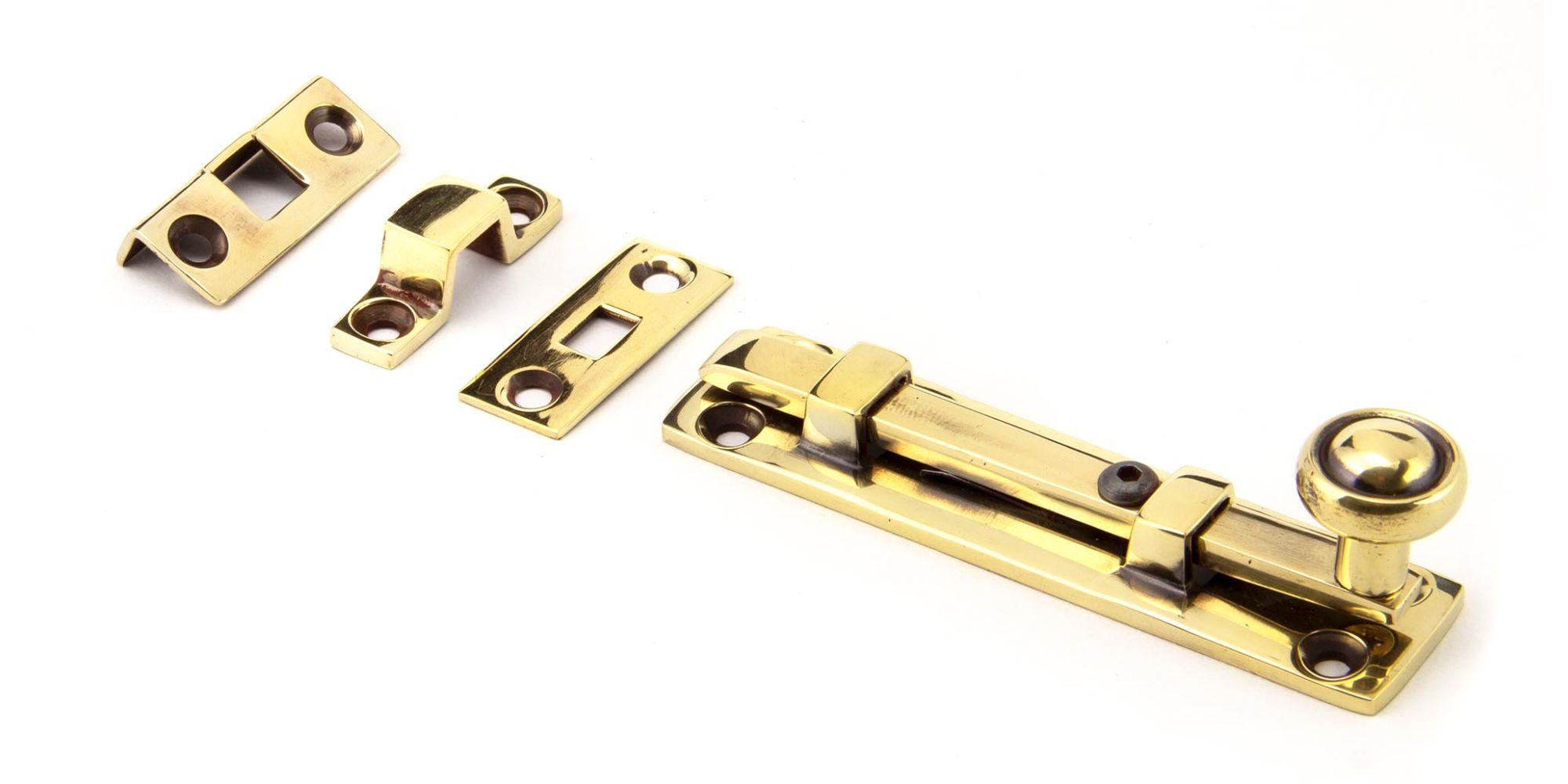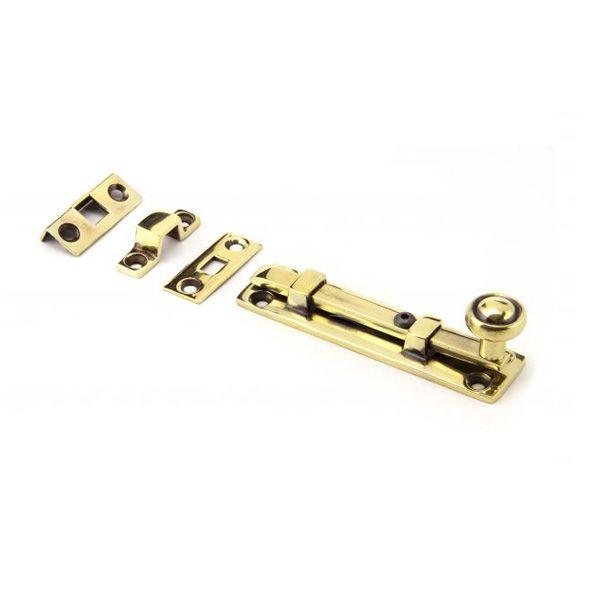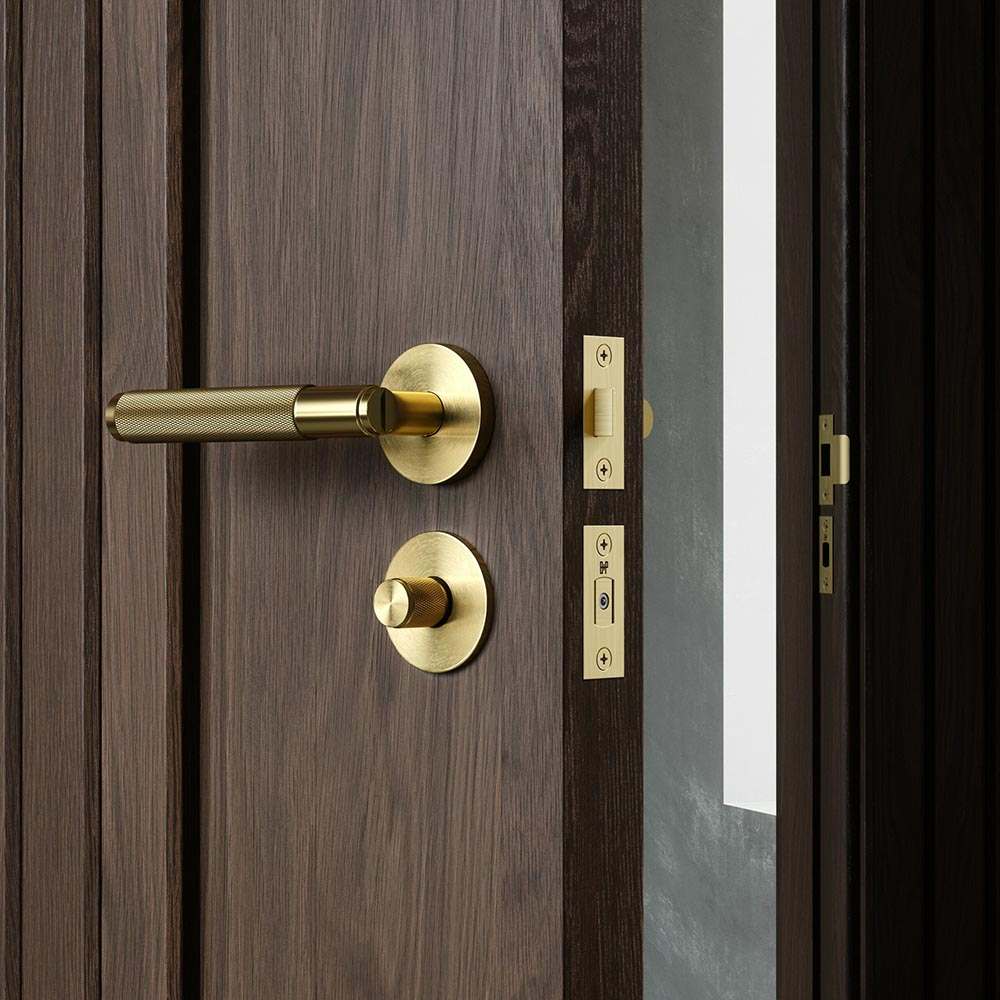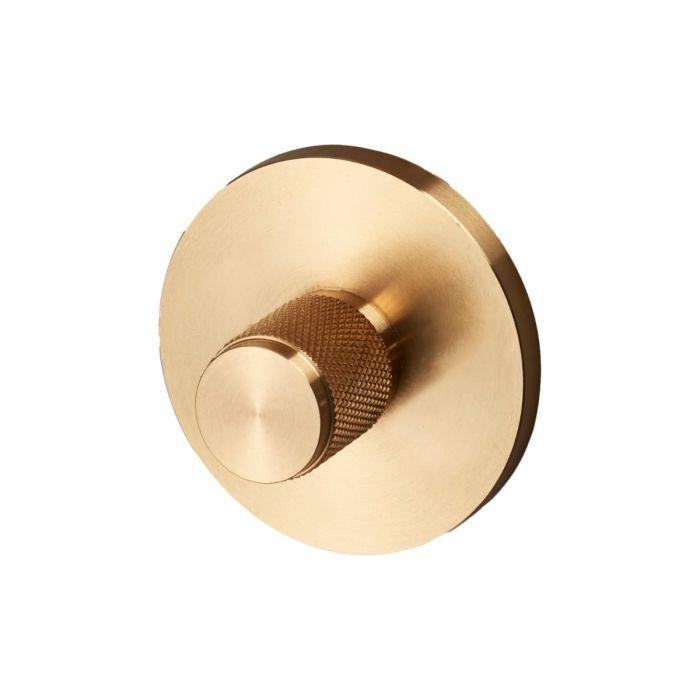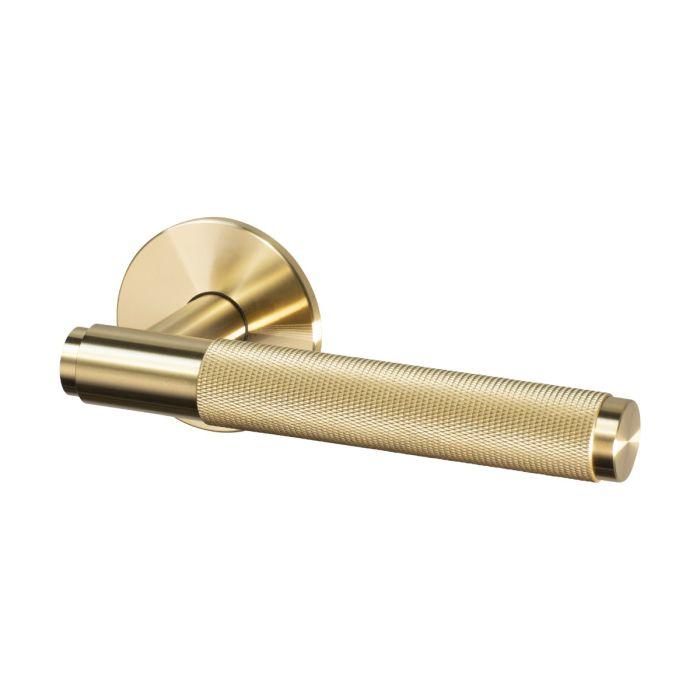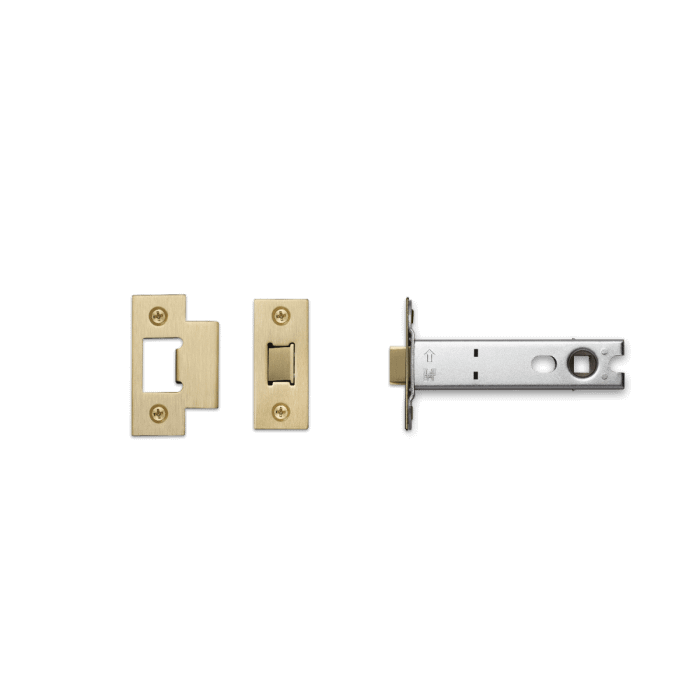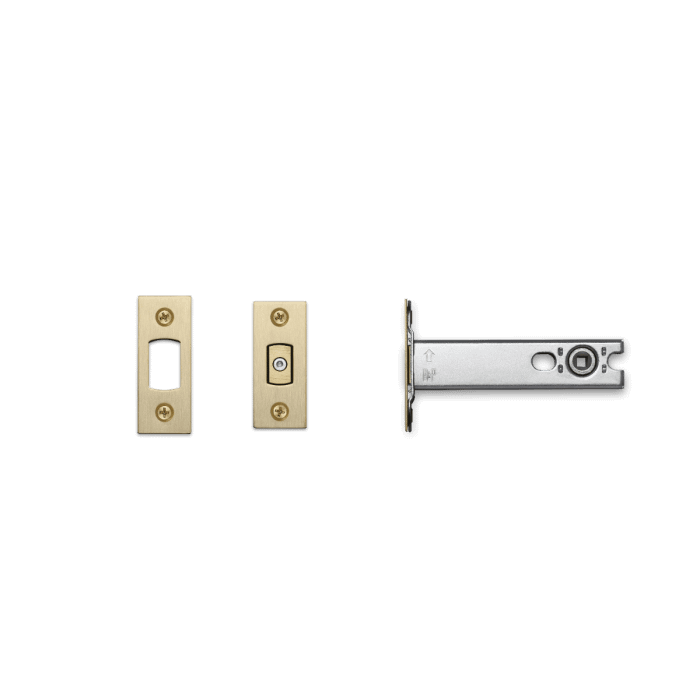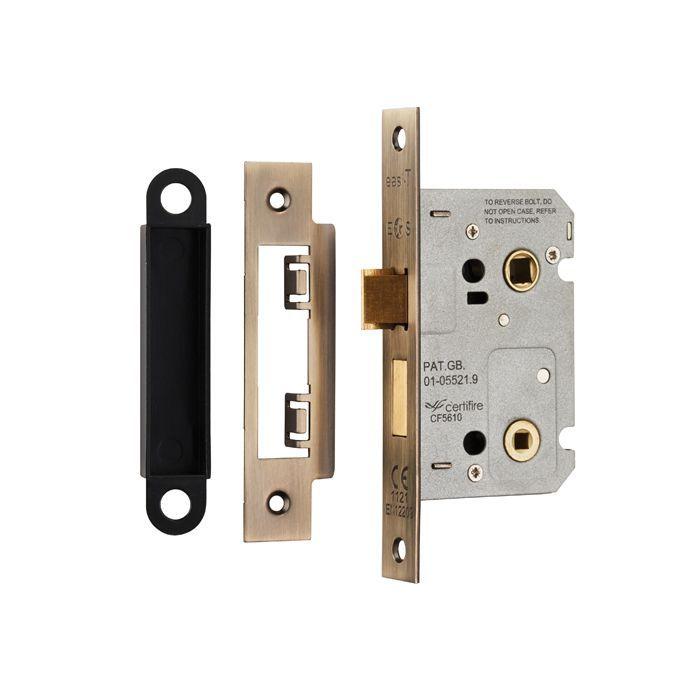Guide To Bathroom Door Lock Types
21 September 2023 :: How To Guides & Home Security
Guide To Bathroom Door Lock Types
How To Choose The Correct Lock For Your Bathroom Door
If there is one time a little privacy is required it’s using the bathroom or toilet. No one likes a surprise door opening in those situations, so here we look at the best options for putting a lock on your toilet or bathroom door.
Door locks for privacy functions on a bathroom, toilet or even bedroom door come in a number of different options. We are going to consider the alternative locking options and which to recommend for your bathroom door.
Sliding Door Bolt
The simplest and most traditional option is to fit a face fix sliding door bolt on to the inside face of the door that catches into a receiver on the door frame. There are many different versions of bolt depending on how you want to match with your decor scheme.
Usually the door bolt will be contained in a metal body with a simple lever or handle to slide the bolt across the door and into the receiver. Different receiver plates are usually supplied with the bolt to allow for different options for the bolt to be secured on the door frame or recessed into the door frame.
In their most simple form the door bolt is only accessible on the inside of the door, which can mean that access is difficult if the door is locked and the person inside cannot unlock the door for some reason.
Some door bolts are supplied with an extra part for the outside of the door allowing you to operate the bolt from outside, often with a vacant/engaged sign included.
Bathroom Privacy Thumb-turn
This is a more modern version of a bathroom door lock that provides a more sleek integral design instead of a simple door bolt. Using a thumb-turn also provides the option for an emergency release to be fitted to the external face of the door allowing the lock to be opened in the case of emergency access.
If you are using door handles on a backplate then most designs offer a bathroom backplate variation where the lever is fitted at the top of the plate and an integral thumb-turn is fitted to the lower part of the plate underneath the lever handle.
This is an industry standard measurement and will fit perfectly with UK standard Mortice Bathroom Locks.
If you are using door knobs or lever door handles on a rose fitting, then a separate thumb turn and release would be used operating on a separate dead bolt lock mechanism. Because the latch and the lock are separate they can be fitted on the door as you prefer without any restrictions on measurements.
Mortice Bathroom Lock
This is the internal lock mechanism that will need to be fitted in tot the door for the door handles to operate. The Bathroom Lock is a large lock case with a face plate and strike plate which includes both a latch and a door bolt. This lock has to be cut to morticed in to the edge of the door to provide a seamless and integral lock system.
The latch and the lock are then operated using standard door handles fitted on the face of the door. The latch is operated by pressing the door handle. A metal bar called the spindle which joins one door lever to the other side by going through the 8mm square top hole (called the follower) in the bathroom lock.
The door bolt to lock the door is operated by a thumb turn fitted on the face of the door. Another smaller metal bar spindle goes through the lower 5mm square hole in the bathroom lock to operate the bolt.
The Mortice Bathroom Lock is slightly more complicated to fit due to having cut out more of the door core to accommodate the larger lock case.
Mortice Dead Bolt
A Mortice Dead Bolt is a useful alternative to the Mortice Bathroom Lock which means you do not have all the mechanics of the latch and lock in one case with predefined sizes. They are also much easier to fit as they are so much smaller.
A Mortice Dead Bolt also separates the bolt function from the latch and so you can vary the distance measurement of where the door bolt is fixed in the door. This can be particularly useful when fitting door knobs or door handles on a rose.
Sizes
There are a variety of different sizes available in Mortice Bathroom Locks and Tubular Deadbolts which will allow you to choose the correct distance from the edge of the door to complement your design of door handle out door knob.
Mortice Lock cases are usually either 64mm or 76mm in the UK industry standard with corresponding backset measurements of 45mm or 57mm respectively. The backset is industry term for the distance from the faceplate of the latch to the centre of the follower. The backset is important because it determines where the centre of the door handle or door knob sits on the face of the door.
Tubular Deadbolts come in five industry-standard lengths: 64mm, 76mm, 102mm, 127mm, and 152mm, with the corresponding industry-standard backset sizes: 45mm, 56mm, 82mm, 107mm, and 130mm.
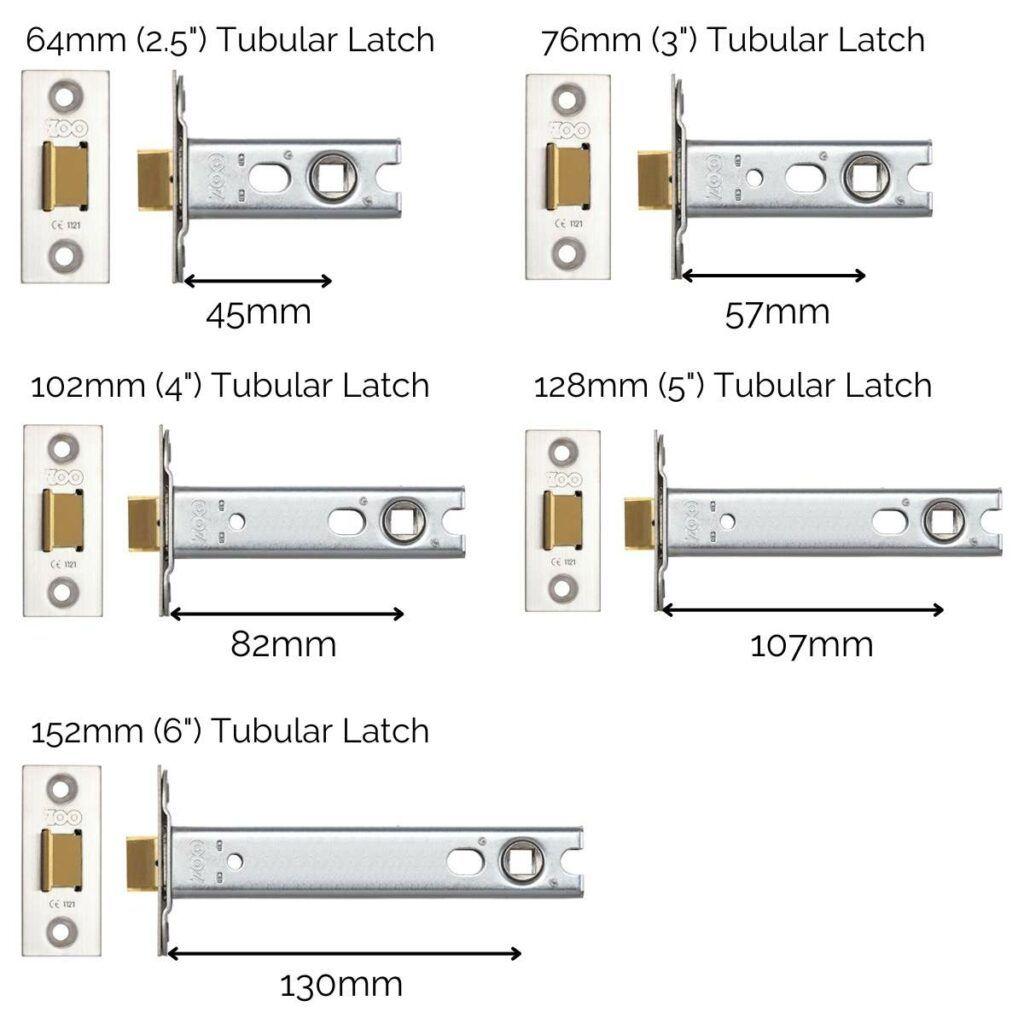
To determine the right size for your door, measure the distance from the edge of the door to where you would like to fix the centre of the door handle or door knob, and choose the backset that is closest to this measurement.
We recommend the 76mm overall latch size with the 57mm backset measurement as usually the best size for most lever handles. However, if the door is glazed, the shorter 64mm overall size should be used to minimise the risk of hitting the glass rebate when drilling to fit the latch.
Door knobs will require a longer backset and the dead bolt can always match so that the handle and thumb-turn line up perfectly on the door face.
If you would like any further advice on choosing the right bathroom door lock then call and speak to the team at More Handles who will be able to answer your questions and make some helpful suggestions on the huge range of choices available.
TEL - 01228 516516
WEB - morehandles.co.uk
EMAIL - sales@morehandles.co.uk

